Tips for Money Exchange in Iran: Your Comprehensive Guide
All You Need to Know About Money Exchange While You are in Iran.
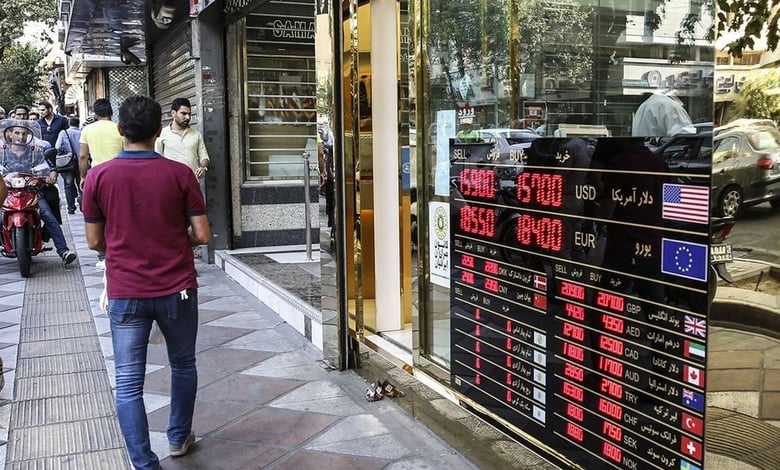
Stepping off the plane at your new destination, the first item on your to-do list often involves exchanging currency. Initially, the task may appear daunting and intricate, but armed with the right knowledge about exchange rates and other key factors, you’ll find it quite manageable. This comprehensive guide will elucidate all the intricacies of money exchange in Iran, aiming to make your journey smoother and more enjoyable.
Navigating Iran’s financial landscape necessitates understanding its currency. Hence, acquainting yourself with the ins and outs of currency exchange is a pivotal aspect of preparing for your adventure.
Many globetrotters ponder which currency is most conveniently exchanged in Iran, wanting to know which type to pack. In this guide, you’ll discover everything necessary for a hassle-free monetary experience in Iran, enabling you to focus on the cultural and scenic gems the country has to offer.
Contents
What is the best currency for bringing to Iran?
In Iran, the official currency is the rial (ریال , abbreviated IRR). It is Iran’s national currency since 1978. However, in everyday life, Iranians are not speaking in rials, but in tomans. One toman is equivalent to ten rials. This concretely means that whatever price you see written in Iranian rial (IRR) equals one zero less: 100.000 rials become 10.000 tomans.
If there used to be coins in Iran, there are no longer in use as they have completely lost their value. Indeed, the high rate of inflation has led to a severe devaluation of Iran’s currency these past years, which keeps going on. Currently, the smaller banknote used is 10.000 rials (which equals approximately 0,03 euros) and the highest is 1.000.000 rials (about 3-4 euros).
Furthermore, something important for travelers to know is that due to international sanctions, the Iranian bank system and its national currency are isolated from the rest of the world. Concretely, it means that it’s impossible to make any transaction or withdraw money with an international credit card (Mastercard, Visa) within Iran. Likewise, as the money is unusable outside of Iran, exchange offices in other countries do not accept or possess any rials. It means that you can only change money inside Iran; not before, nor after.
What is the best currency to bring to Iran?
So now, you know that you will need rials for your trip to Iran, but also that you won’t be able to withdraw them with your credit card and you can’t go to an exchange office in your country to buy some either. What does it mean? That you will need to bring your whole trip budget in cash and change it upon arrival to Iran.
That’s why it’s important for you to bring a currency that is easy to change in Iran. While traveling to Iran, we recommend you bring US dollars (USD) or euros (EUR). These two currencies are accepted everywhere and will be easy to change. British Pound (GBP) and United Arab Emirates Dirham (AED) are also largely accepted, as well as some other major currencies such as British Pounds (GBP) for example.
Yet, even if most major currencies are accepted in Iran, you will have for sure more trouble changing them (especially large amounts) than euros or dollars, which are always accepted. So, before coming to Iran, it is recommended to change your money into one of these currencies to bring only euros or dollars to Iran.
Bringing small or large banknotes depends on you. 10 dollars or euros banknotes are as easily accepted as well as 100; yet it is recommended to have some small banknotes with you, as you may not want to change a lot every time. Also, quickly pay attention that the bill is not damaged, which could prevent the buyer to accept it.
Iranian Currency: Banknotes in Iran
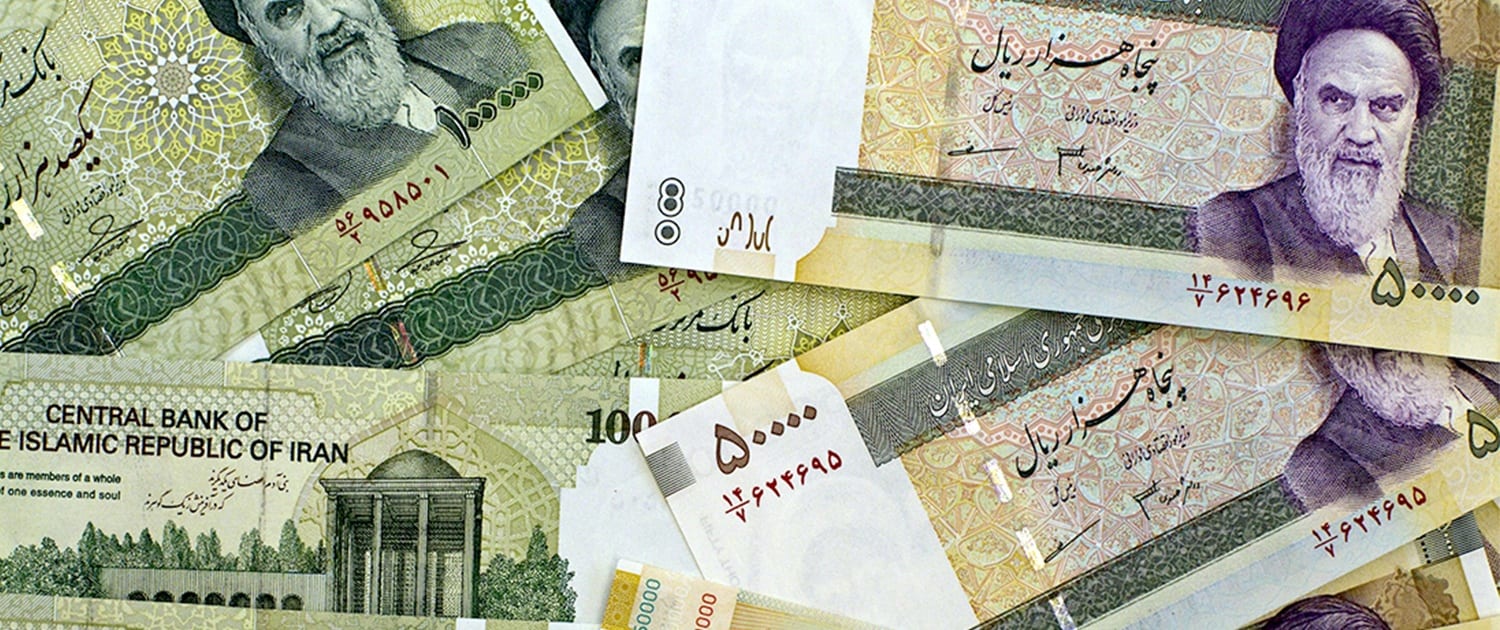
To be able to exchange money in Iran, first you should know about its currency. Rial (shown with ریال symbol and IRR currency code) is Iran’s official currency. The most common banknotes you will see in Iran are 5000, 10000, 20000, 50000, 100000, 500000, and 1000000 Rials.You also will probably see coins in value of 1000, 2000, and 5000 Rials.
Apart from the many zeros involved in any transaction, foreign visitors need to be aware that prices are always quoted in rials when written, but are quoted in Toman in speech. Toman is an unofficial currency used by Iranian people in daily transactions. It may sound confusing at first, but converting Rial to Toman is so simple. Each Toman equals 10 Rials. So, all you need to do is to put your hand on the last zero of the banknotes to get the value in Toman. The values you see in bank jobs and exchange shops are in Rial, while in public spaces such as hotels, restaurants and markets, people use Toman instead of Rial.
Chek-pul (check money)

In recent years a useful method also has been adopted which does away with the need to carry bags of money when going shopping. It is called chek-pul (check money) and works like a traveler’s check but doesn’t have a name written on it, so it functions as a large denomination bill.
The most common denominations of chek-puls are 500000 and 1000000 rials, but even higher ones are used in large transactions.They can be bought from any bank and, after the streamlining of the financial system, they are accepted everywhere.
At present, Iranian currency can only be bought in some Middle East countries, so if you are coming from anywhere else, you will need to buy rials after you arrive.
The Exchange Rate in Iran
In Iran, you will encounter two different rates. One is the government official rate and the other is the market rate. The market rate is higher than the government rate, so you better choose market exchanging shops instead of those which are a part of banks. In Iran’s central bank’s website you can see the official rate.
To know about the current market exchange rate, checking out the electronic billboards that every exchange shop has right at its door and some applications such as Bonbast can be helpful.

When you arrive at the airport, you can change money in the airport’s exchange shop. Normally, it is a little bit lower than the market rate, but it is neither the government official rate. It varies from time to time, but it normally is 6000 Rials(600 Tomans) to 10000 Rials(1000 Tomans) cheaper than the Iran’s free market.So, for taxis and initial expenses, it would be a good idea to exchange some money right after your arrival. It is also good to have change to exchange a little part of your money each time at the airport and in the city in total.

When you get to the city, you can find exchange shops. Some may be located near your hotel or they may be in other parts of the city. You better ask the reception to guide you.
In Tehran, the main center for money exchange is in Ferdowsi square.
In Shiraz, you will find exchange markets mainly in Karim Khan square and Mali Abad boulvard .
In Isfahan, there are some exchange shops in Hakim Nezami street and Sepah street.
In Yazd, you can find exchange markets in Imam Khomeini Street, next to Dad Hotel and in front of Yazd’s fire temple.
In big cities like Tehran, you may see people outside the market shops who suggest you to exchange your money. Be careful about them. They might give you counterfeit money. So, the surest way is to get your money exchanged only in market shops and receive an official receipt for it.
Besides, watch your money while you are in such places. Carrying money, especially euros and dollars near such places can be dangerous. So, be careful with your money and avoid having so much cash with you.
What you should pay attention?
You may need to change money several times during your stay in Iran. To be sure not to run out of cash, plan it in advance. First, know that there may be no exchange office in small cities or rural areas, so prefer changing your money while in major cities.
Be careful about the days of the week. Exchange offices are closed during the weekends (Thursdays and Fridays) and on national holidays (which are plenty in Iran!). Likewise, there are generally open only during the morning. Eventually, always avoid changing last minute as it may happen that exchange offices do not accept buying currencies for several days in a row. It happens when the euro or dollar rates suddenly go up and the market is unstable. In that case, buyers (exchange office) may want to wait a few days that the rate gets stabilized.
How to know the exchange rate?
One of the tricky aspects of changing money in Iran is understanding what is the correct exchange rate. If you check online on famous websites like xe.com, you may believe that 1 euro equals 44.000 rials. Yet, when you will go to the exchange office, you may be offered something like 300.000 rials for the same euro. So what’s going on here?
Iran actually works with several rates, and the one you can find online is called the official rate, which is in fact, none of your concern. What actually matters is the free market (or open market) rate, which is the real value of the currency. You can find the current rate on specialized websites such as bombast.com (yet, the rate is slightly higher than what you can expect while changing in Iran).
That is the rate applied at the exchange offices. In Tehran, like in the rest of the country, exchange rates are written in English on LCD screens in the windows of the exchange offices. Don’t spend too much time hunting for the best rate between exchange offices, as they are generally similar and it won’t make a big difference if you change a small amount of money.
How to avoid carrying wallets of rials
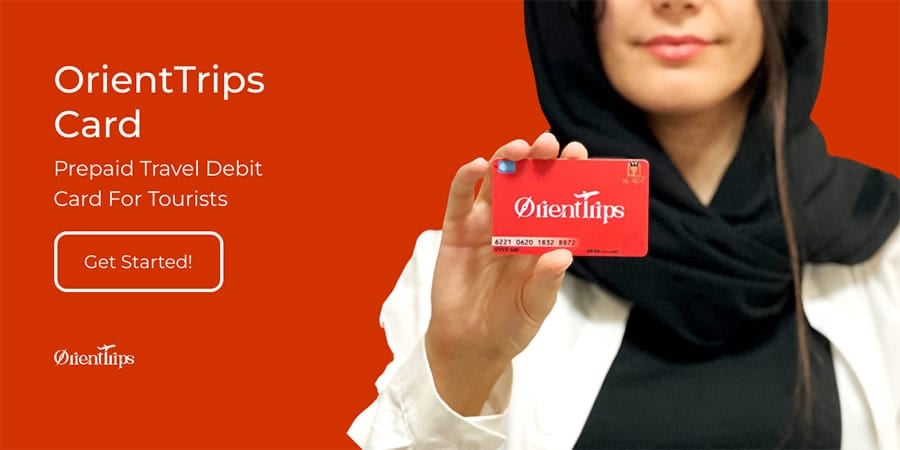
But there are also some solutions to solve this problem. One of them is using services such as OrientTrips Iran Debit Cards. It is an alternative to carrying cash when visiting Iran.
OrientTrips Iran Tourist Card is an Iranian prepaid debit card designed for tourists and temporary visitors. You can instantly add funds to your card, in your preferred currency and convert it to Iranian Rial (IRR).
Also, some Persian banks such as National bank of Iran (or Melli Bank), Pasargad bank and Saman bank provide tourists with Iran tourist card. So you can easily exchange your cash amount into your Iranian credit card.
Read More
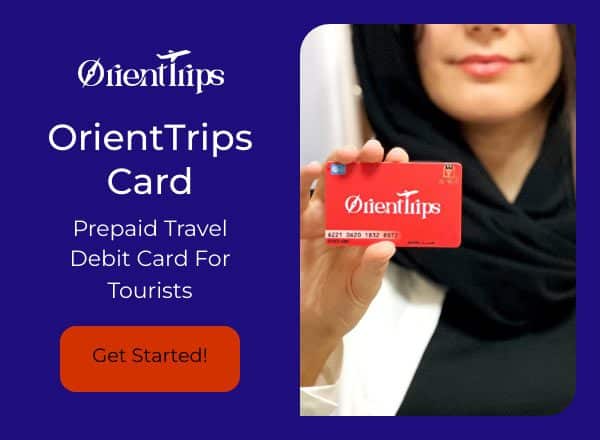


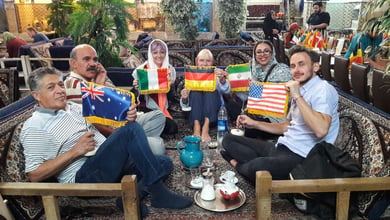




I love this City be cause I need to be there and I love people over there